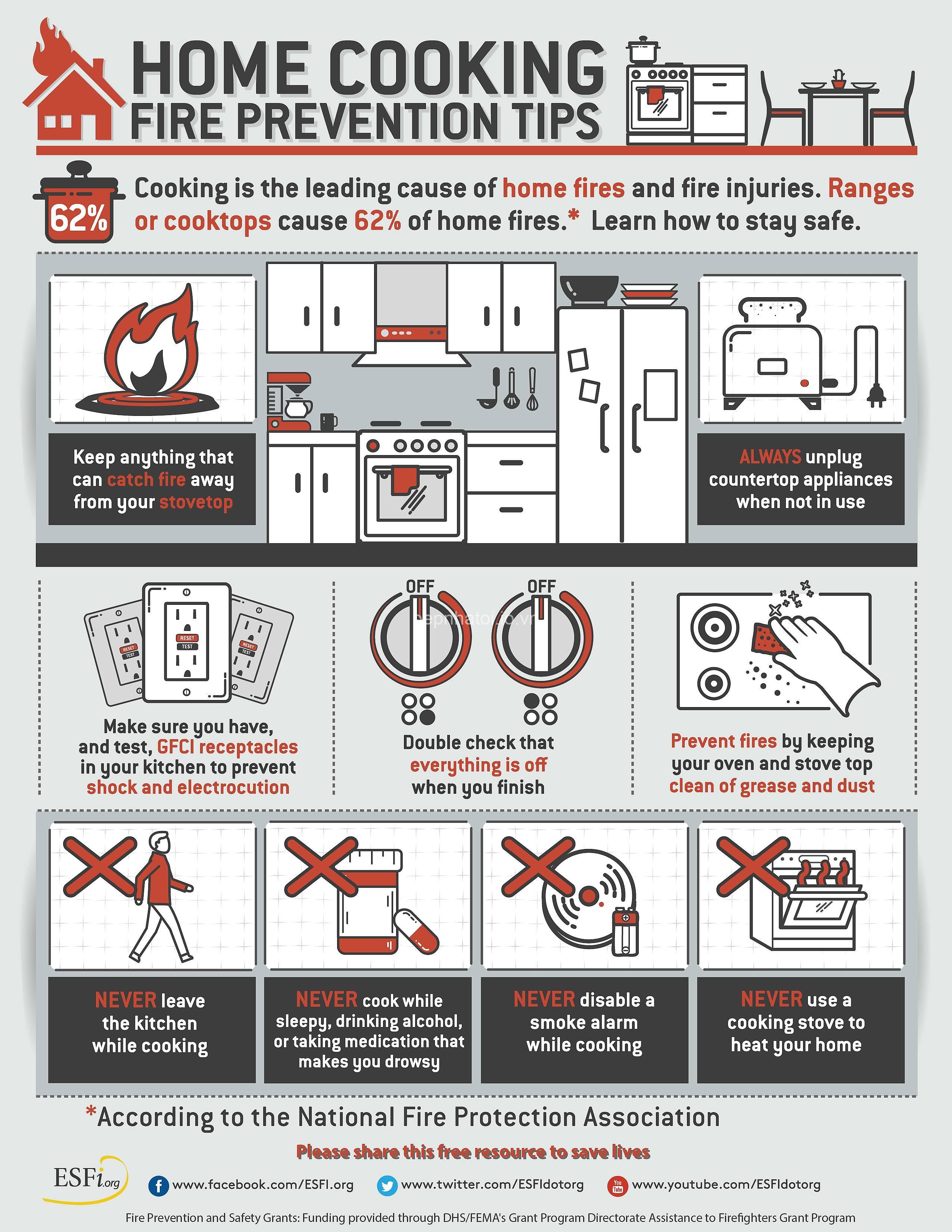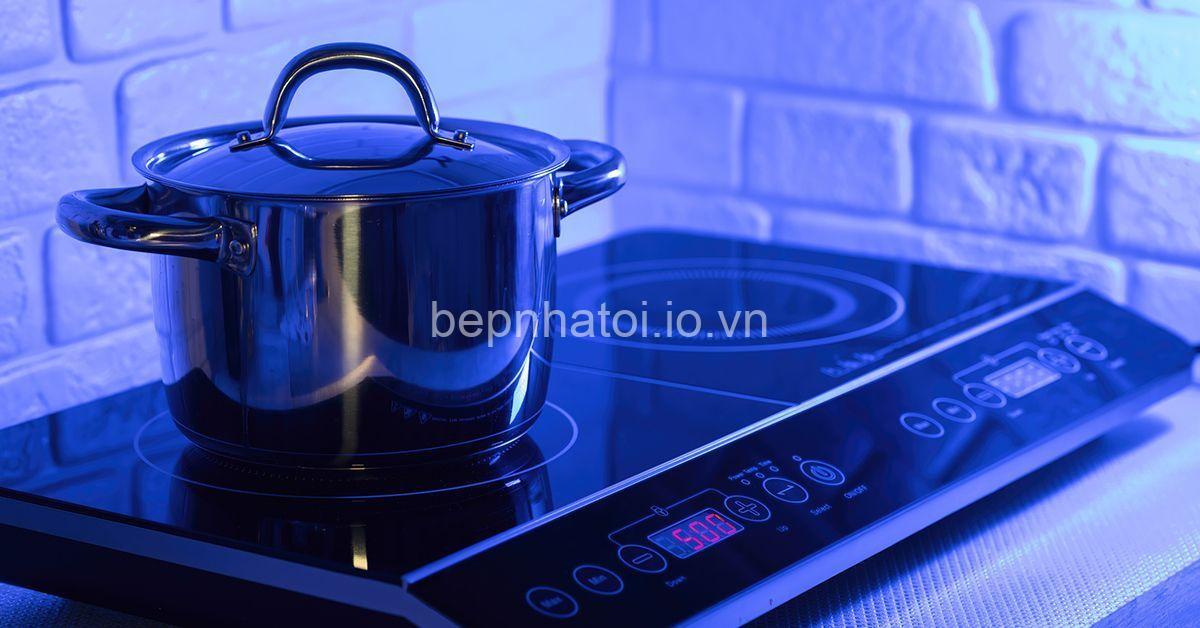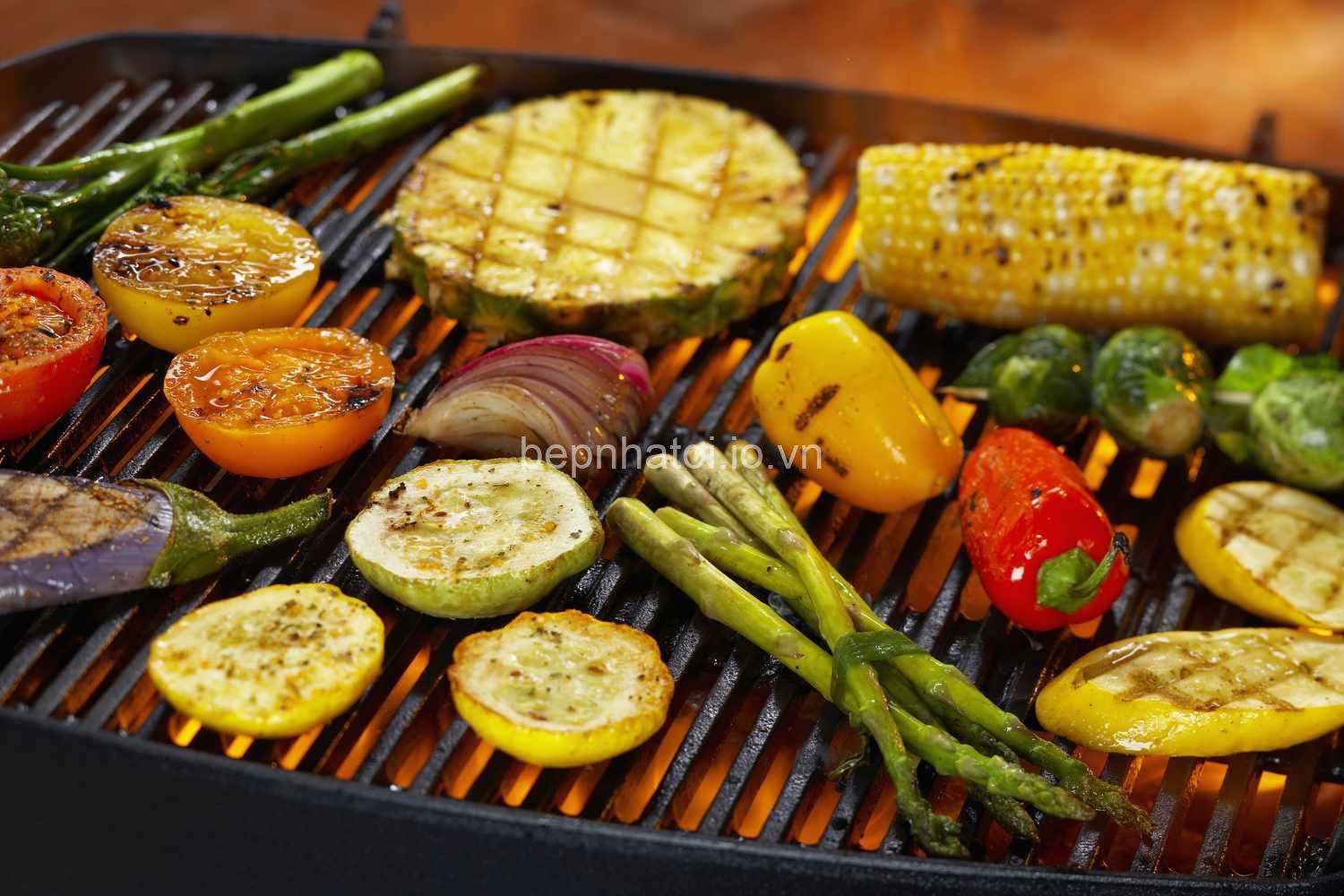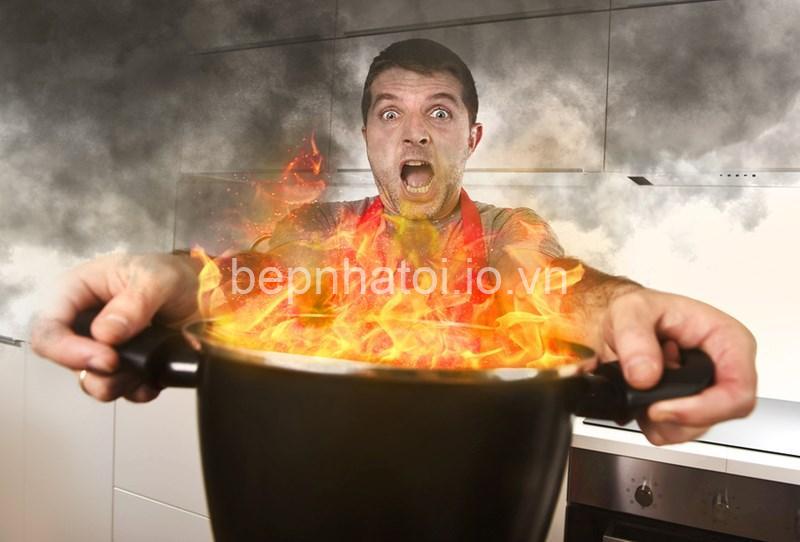
Electric Stove Safety: Prevent Fires & Stay Safe. In today’s article, bepnhatoi.io.vn will explore with you in the most detailed and complete way. See now!
Understanding the Risks: Fire Hazards Associated with Electric Stoves
Electric stoves are a staple in many kitchens, offering convenience and efficiency. However, they also come with potential fire hazards if safety measures aren’t taken seriously. It’s crucial to be aware of these risks to prevent accidents and protect your home and family.
Electric Stove Components and Potential Issues
- Burners and Heating Elements: These are the heart of an electric stove, providing the heat for cooking. However, they can overheat, malfunction, or be misused, leading to fire hazards. Improperly sized cookware or placing flammable materials directly on the hot elements can also cause a fire.
- Control Panel: The control panel houses the buttons, dials, and timer that regulate the stove’s functions. Faulty controls, accidental ignition, or a malfunctioning timer can all contribute to a fire.
- Grease Buildup: Grease and food spills left uncleaned can build up on the stovetop, creating a flammable layer. When heated, this grease can ignite, causing a dangerous fire.
Common Causes of Electric Stove Fires
- Leaving the stove unattended: This is a major cause of kitchen fires. Never leave a stove unattended when cooking, especially when using high heat or cooking oil.
- Using flammable materials near the stove: Storing flammable liquids like lighter fluid, aerosols, or paper products near the stove creates a fire hazard. Always keep these items safely away from the stove.
- Improper cookware selection: Using cookware that is not designed for electric stoves or is damaged can cause overheating, spills, and potential fires. Ensure your cookware is compatible with your stove and in good condition.
- Inadequate ventilation: When cooking, heat and smoke are generated. Proper ventilation is essential to prevent smoke buildup and reduce the risk of a fire. Ensure your kitchen has a working exhaust fan or range hood.
- Overheating due to improper use: Overloading the stovetop with too many pots and pans, using the wrong burner size, or leaving food unattended can all lead to overheating and a fire.

General Safety Precautions for Electric Stoves
Now that you understand the potential risks, let’s discuss essential safety precautions you can take to prevent electric stove fires.
- Always be present when cooking: This simple rule is the most important safety tip. Never leave a stove unattended, even for a short time.
- Avoid using flammable materials near the stove: Keep flammable materials like paper towels, dishcloths, and cleaning supplies away from the stovetop.
- Keep stovetop clean and free of debris: Regular cleaning is essential for safety. Wipe spills and grease immediately after cooking to prevent buildup and potential ignition.
- Use proper cookware: Choose cookware designed for electric stoves. Avoid using pots and pans with warped bottoms, loose handles, or damaged surfaces.
- Ensure proper ventilation: When cooking, especially with high heat, turn on your exhaust fan or range hood to remove smoke and heat. This helps prevent a buildup of smoke and creates a safer environment.
- Keep children and pets away: Children and pets are curious and may be drawn to the stovetop. Always supervise children when they are in the kitchen, and keep pets out of the cooking area.
Specific Safety Tips for Electric Stove Features
- Burners:
- Choose the appropriate burner size for cookware: Always use a burner that is the same size or slightly smaller than the base of your cookware. This prevents heat from escaping and helps to cook food evenly.
- Use pot holders: Hot cookware can cause severe burns. Always use pot holders when handling hot pots and pans to protect yourself from burns.
- Keep burner surfaces clean: Wipe spills and grease immediately after cooking to prevent buildup and potential ignition.
- Heating Elements:
- Avoid placing items on hot elements: Never place flammable materials or cookware directly on the hot elements. Use trivets or pot holders to protect surfaces and prevent fires.
- Be cautious when using a heating element with a broken surface: A damaged or cracked heating element poses a significant fire hazard. Replace any damaged elements immediately.
- Control Panel:
- Use caution when adjusting controls: Always be mindful of the settings on your control panel and adjust them with care. Accidental ignition or overheating can occur if controls are not used correctly.
- Regularly check the controls for damage: Inspect your control panel regularly for any signs of damage or malfunction. Replace or repair any damaged controls immediately.
- Timer Feature:
- Use the timer function wisely: The timer feature can be helpful for preventing overcooking and potential fires. Set the timer for the appropriate cooking time and always monitor the stove while cooking.
- Avoid using the timer for unattended cooking: Even when using the timer feature, it’s crucial to be present and monitor the stove to ensure food is cooking properly and there are no signs of trouble.
Emergency Procedures for Electric Stove Fires
-
In case of a small fire:
- How to Use a Fire Extinguisher: Knowing how to use a fire extinguisher is essential. Keep a fire extinguisher in a readily accessible location, and ensure everyone in your home knows how to use it.
- Extinguishing a Small Fire on the Stovetop: If a small fire ignites on the stovetop, turn off the burner immediately. Use a fire extinguisher to put out the fire, aiming at the base of the flames.
- Calling the Fire Department: If the fire cannot be controlled, evacuate your home immediately and call the fire department.
-
In case of a larger fire:
- Immediate Evacuation: Your safety is paramount. If a large fire breaks out, evacuate your home immediately. Do not attempt to fight the fire yourself.
- Do Not Attempt to Fight a Large Fire: Large fires can spread quickly and become dangerous. Always evacuate and call the fire department to handle the situation.
- Additional Safety Measures During Evacuation: When evacuating, ensure all doors and windows are closed to prevent the spread of fire and smoke. Once outside, stay a safe distance from the building and wait for the fire department’s arrival.
Maintaining Your Electric Stove for Safety
Regular maintenance is essential for keeping your electric stove in optimal condition and minimizing fire risks.
-
Regular Cleaning and Maintenance:
- Cleaning the Stovetop: Regular cleaning is key to preventing grease buildup and potential ignition. Clean the stovetop after each use with a damp cloth and mild detergent.
- Inspecting the Heating Elements: Regularly inspect the heating elements for any signs of damage, such as cracks or burns. Replace any damaged elements immediately.
- Checking the Control Panel: Inspect the control panel for any signs of wear, damage, or malfunction. Replace or repair any damaged controls promptly.
-
Professional Inspections:
- When to Call a Professional: If you notice any signs of damage, malfunction, or unusual behavior with your stove, contact a qualified appliance technician for a professional inspection and repair.
- Safety Certifications: Ensure your electric stove has the necessary safety certifications and is in compliance with local safety regulations.
Frequently Asked Questions about Electric Stove Safety
What are some tips for preventing grease fires?
- Clean spills promptly, ensuring no grease remains on the stovetop.
- Avoid overcrowding the stovetop, allowing adequate space between pots and pans.
- Use a splatter screen to prevent grease from splattering and igniting.
- Turn off the burner if grease catches fire and use a fire extinguisher to put out the fire.
What type of cookware is safe for electric stoves?
- Use flat-bottomed cookware made of materials that conduct heat well, such as stainless steel, cast iron, or aluminum.
- Avoid using warped, damaged, or uneven-bottomed cookware.
- Choose cookware with handles that are securely attached and heat-resistant.
What should I do if my electric stove control panel is malfunctioning?
- Contact a qualified appliance technician to inspect and repair the control panel.
- Do not attempt to repair the control panel yourself, as this can be dangerous.
- Temporarily avoid using the stove until it has been inspected and repaired by a professional.
What are the signs of a malfunctioning heating element?
- The heating element is not working properly, or it is not getting hot enough.
- The heating element is making unusual noises, such as clicking or popping.
- The heating element is cracked or damaged.
- The heating element is discolored or burnt.
Should I have my electric stove inspected regularly?
- It is a good idea to have your electric stove inspected by a qualified appliance technician at least once a year.
- This will help ensure that your stove is in good working order and free from safety hazards.
Conclusion
As you can see, preventing fire hazards with an electric stove is essential for a safe and enjoyable cooking experience. By following the safety tips and emergency procedures outlined in this article, you can create a safer kitchen environment for your family, friends, and pets. Remember, safety should always be a top priority. If you have any questions or concerns about your electric stove, it’s best to consult with a qualified appliance technician.
For more information on pet care, pet safety, or other topics related to animal welfare, be sure to visit bepnhatoi.io.vn. We’re always here to help you provide the best possible care for your furry companions. Don’t forget to share this information with your friends and family!
I’d love to hear your thoughts on electric stove safety and any tips you have to share. Leave a comment below!





